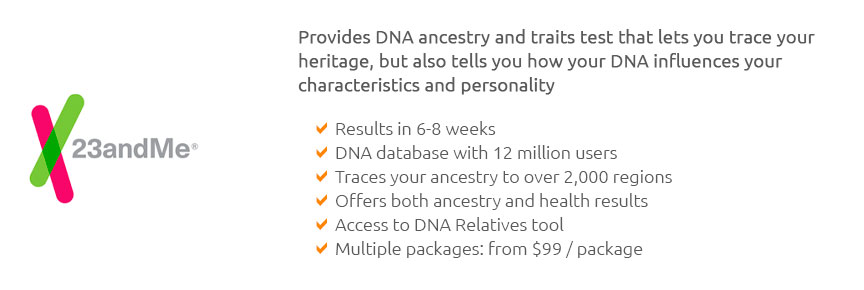 |
 |
 |
|---|
 |
 |
|---|
 |
|
|---|---|
 |
 |
 |
 |
 |
 |
 |
 |
 |
 |
 |
 |
 |
 |
 |
 |
|---|
The Intricacies of DNA Genetic Testing Kits: Common Mistakes to AvoidIn the ever-evolving world of personalized medicine, DNA genetic testing kits have surged in popularity, offering individuals the tantalizing promise of uncovering their ancestral roots, potential health risks, and even predispositions to certain traits. However, as with any rapidly expanding field, navigating the world of genetic testing kits can be daunting, with pitfalls that are often overlooked in the excitement of self-discovery. To help you make the most of your genetic exploration, let's delve into some common mistakes to avoid. First and foremost, it's crucial to understand what your test can and cannot tell you. Many people purchase these kits with the expectation that they will receive comprehensive health diagnostics or a detailed family tree. While some kits do provide insights into specific health markers or broad ancestral regions, they are not a substitute for professional medical advice or a detailed genealogical study. It's important to read the fine print and understand the scope and limitations of the test you're choosing. Equally important is the notion of privacy and data security. When you submit your DNA sample, you're not just providing a snapshot of your genetic makeup; you're also sharing potentially sensitive information. Before you send off your sample, scrutinize the company’s privacy policies. Are they sharing your data with third parties? How long do they store your genetic information? These are vital questions to consider to safeguard your privacy. Another common mistake is misinterpreting the results. Genetic data is complex and often requires a nuanced understanding that many of us lack. Just because a test suggests a predisposition to a certain condition doesn't mean you will develop it; conversely, a lack of markers for a disease does not make you immune. It’s advisable to discuss your results with a healthcare professional who can provide context and advice tailored to your personal health profile. Furthermore, beware of over-reliance on ancestry results. While it's fascinating to learn about your genetic lineage, these results are based on probabilistic models and reference populations, which can sometimes lead to unexpected or inaccurate outcomes. Remember, cultural heritage and family history are enriched by more than just genetic data. Lastly, consider the long-term implications of your genetic information. As research advances, new findings could alter the interpretation of your results. Stay informed about updates from the company regarding any new insights or health-related findings that could affect you. In conclusion, while DNA genetic testing kits offer a window into our biological past and potential future, they should be approached with a clear understanding of their capabilities and limitations. By avoiding these common mistakes, you can make informed decisions that truly benefit your journey of genetic discovery. https://www.crigenetics.com/?srsltid=AfmBOoqrr2RUW9j1ljhK8Mn3Ot9Fz1TbzWNkuzN6JY0IXLd5T6uqMDpa
Discover your unique genetic makeup with CRI Genetics. Our DNA testing provides detailed ancestry insights and personalized health reports. Learn more now. https://www.23andme.com/?srsltid=AfmBOoq0dNKasU_kxvhSGWmBPtramliRD7ZP8KsiEwhk0Xe1Z8BuKsdH
23andMe offers DNA testing with the most comprehensive ancestry breakdown, personalized health insights and more. https://www.familytreedna.com/?srsltid=AfmBOoro-2mliwRhDmh5H9qRCQIOQ3ci3WXyMS7kpa4P4zIXDg_d5uSr
FamilyTreeDNA test kit with faces floating around the box. Where will your ...
|
|---|